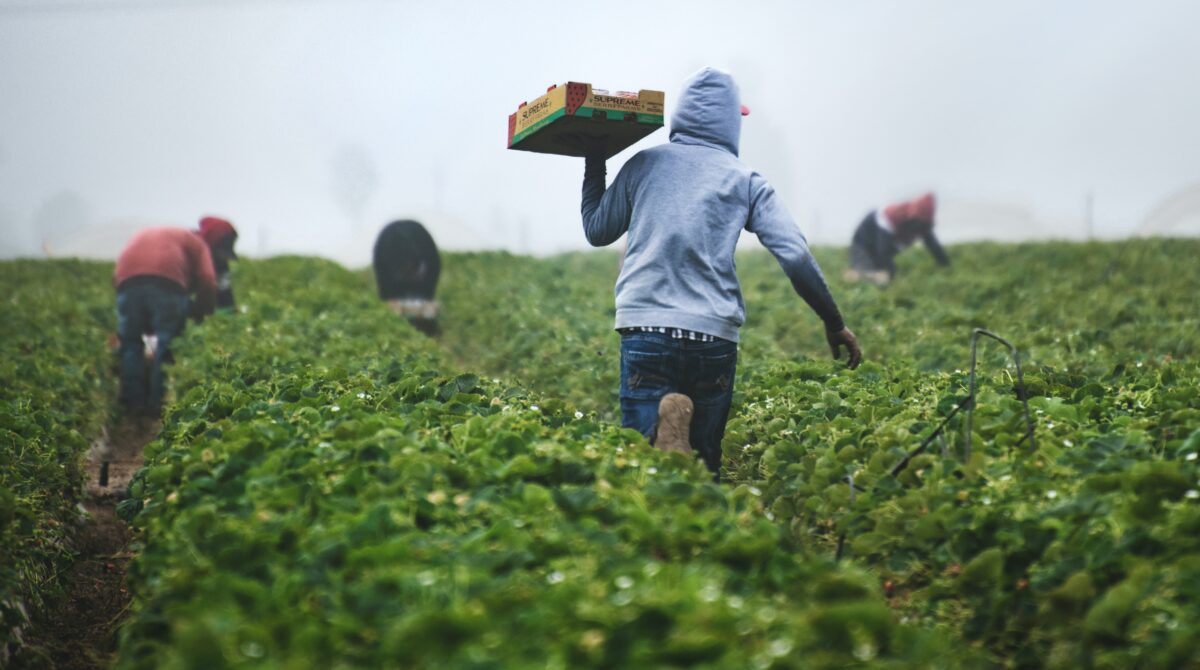How did the project to support agricultural workers in Campania, Calabria, and Sicily come about?
Italy is a major producer of fruits and vegetables, ranking among the best in Europe. Our produce is of excellent quality, and this production is a backbone of our economy. However, in some cases, this success is achieved through severe exploitation, labor gang systems, and sham contracts. In such contexts, agricultural workers are forced to work in appalling conditions for ten to twelve hours a day, in suffocating heat, without protections. Most of them live in dilapidated buildings or informal settlements without access to drinking water or sanitation facilities.
It is distressing to witness the living conditions of people who were promised prosperous and well-paying jobs but end up exploited. EMERGENCY’s goal with the project to support agricultural workers in Campania, Calabria, and Sicily is to ensure these people receive medical care as a fundamental right and to make them aware of their rights.
The project is based on Article 32 of the Italian Constitution, which addresses the universal right to healthcare for everyone present in our territory – not just citizens.
What does the project involve?
In close collaboration with local health authorities (ASLs), the project addresses the socio-health needs of agricultural workers in extreme vulnerability through mediation, socio-administrative support, guidance on healthcare pathways, and the direct provision of medical, nursing, and psychological services.
This doesn’t mean replacing the existing healthcare system but rather implementing an approach that considers the various social determinants of health.
Migrants and seasonal workers who are victims of labor exploitation often don’t know their rights. They struggle to navigate the healthcare system due to the near-total absence of cultural mediators, administrative and bureaucratic hurdles, and even practical issues like reaching healthcare facilities.
At EMERGENCY, we have heavily invested in the role of cultural mediators. Thanks to them, we save a lot of time as they guide people and quickly help healthcare staff understand the patient’s needs, enabling them to become autonomous.
The project also uses mobile clinics that travel through scattered rural areas. One of the biggest challenges is access to care. We often work from 3:00 PM to 9:00 PM, as this is when workers finish their shifts in the fields and have time for medical visits.
When you don’t know how to access care or the ASL clinics’ hours don’t align with your work schedule, you can’t afford to miss a day of work—because it means not having enough to eat.
We have witnessed many inspiring stories through this project. For example, some second-generation individuals who grew up seeing their parents toil in Sicilian greenhouses have managed to graduate from university. Some of them are now valuable assets to EMERGENCY’s Italy Program.
They are incredible professionals, shaped by their lived experiences. They quickly understand the needs of people, especially those from the same geographic area. These individuals bring new knowledge and life experiences, which we must learn to interact with and value.
Have you established collaborations and networks with complementary expertise to provide support beyond healthcare?
EMERGENCY’s multidisciplinary team was created to provide a comprehensive response. We’ve developed fruitful collaborations with a network of local partners, including public administration, ASLs, third-sector organizations, and private entities.
For instance, we collaborate with ASGI for the legal protection of healthcare access rights, and with GrIS groups, which are the territorial extensions of SIMM. The Castel Volturno Solidarity Network handles legal and social support.
In Castel Volturno, in particular, we collaborate with Ex Canapificio in Caserta for legal protection and with the Comboni Missionaries for social assistance.
Each area has its specificities, but the network always operates bidirectionally to ensure beneficiaries receive the best possible support. Despite the structural challenges of a country that invests too little in welfare and healthcare, these collaborations enable us to make the most of available resources. For this reason, the work produced has significant value—not only for individuals but also for the network itself.
What motivates you to do this work, and what would you say to young people?
There are often more frustrations than satisfactions, and it can feel overwhelming. Some evenings, I feel like giving up, but then the next morning, I start again. As long as that happens, it’s fine. This work can be frustrating, but it’s also deeply meaningful. When there is great value in what you do, it helps you overcome the challenges.
I’m fortunate to work with incredible colleagues—truly amazing people.
I’d love to see more young people in positions of responsibility and decision-making roles. In Italy, we tend not to trust young people, which is a fundamental mistake.
To young people, I say: have faith, be persistent, fight for what you believe in, and demand responsibility if you are competent. Young people are inherently revolutionary; they have the desire to challenge everything. Don’t be afraid to demand the dignity of what you’ve achieved, even if only in a short phase of life. Time is relative—what matters is the quality and intensity of certain experiences. Don’t listen to the voice that tells you you won’t make it.
